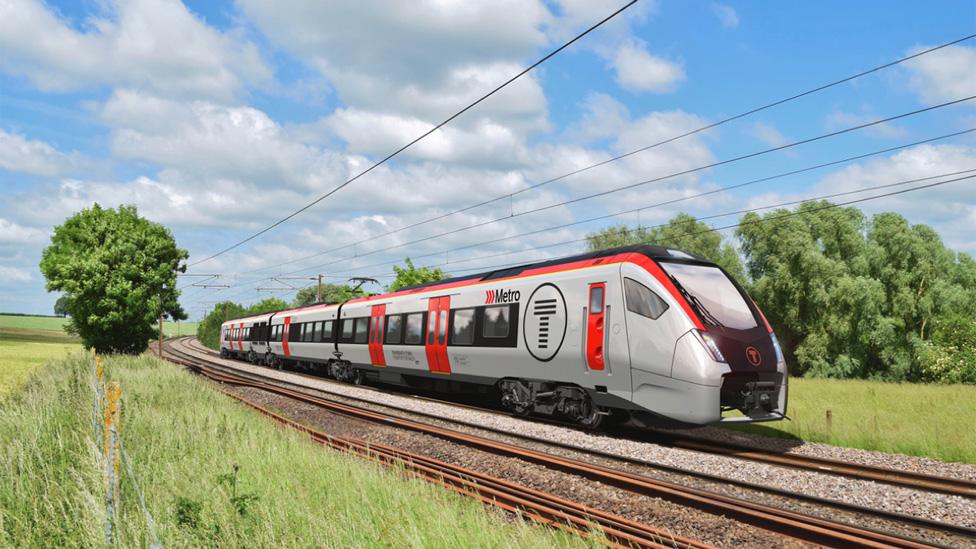Rail fares: Why do prices vary around Wales?
- Published
- comments
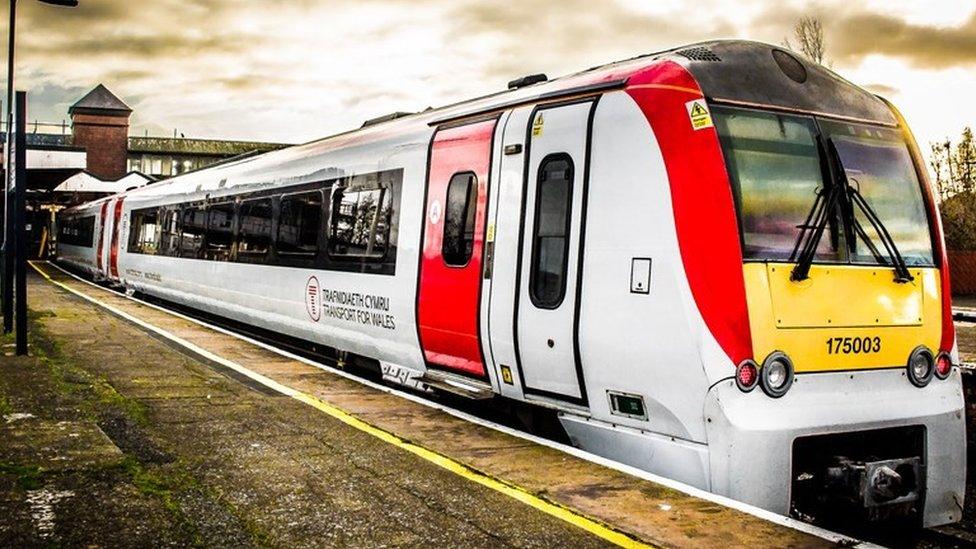
Transport for Wales took over the all-Wales rail franchise in 2018
Have you ever wondered who came up with the price of your train ticket and how they reached that figure?
You may have pondered why it costs £21.40 to travel the 52 miles between Flint and Bangor but just £17.30 to travel the 51 miles between Swansea and Newport.
A journey from Bangor to Holyhead works out at 41p a mile when the journey between Wrexham Central and Shotton works out at 23p a mile.
We asked an expert to explain.
Prof Stuart Cole, professor of transport at the University of South Wales, said tickets on the north Wales mainline were more expensive than the south Wales mainline because the former is more influenced by the UK government's fares policy and the latter by the Welsh Government's policies.
This is to a large part the result of demand and revenue levels and where the fares decision was made historically when north Wales' services were managed from north-west England.
There are currently four main train companies that operate within Wales:
Transport for Wales Rail Services (TfW) operate all local services wholly within Wales and some cross border routes, for example to Manchester
Greater Western Railway operates services from south Wales to London and between Cardiff and Portsmouth
Virgin Trains operates trains between north Wales and London
Cross Country operate services from Cardiff to Nottingham and Birmingham
These train operating companies, external run passenger services, leasing and managing stations from Network Rail and trains from rolling stock companies.

"GWR, Virgin and Cross Country rail franchises are controlled by the UK government's Department for Transport," said Prof Cole. "TfW Rail Services takes its direction from Welsh Government through TfW the rail authority.
"Prices are higher in north Wales because the fares are negotiated between Transport for Wales, the UK's Department for Transport and Virgin Trains - a historical legacy and market position.
"In south Wales TfW have a greater influence over fares and on the route between Cardiff and Swansea the Welsh Government subsidises TfW services.
"The Welsh Government policy is to maintain fares at as low a price as possible using subsidy payments."
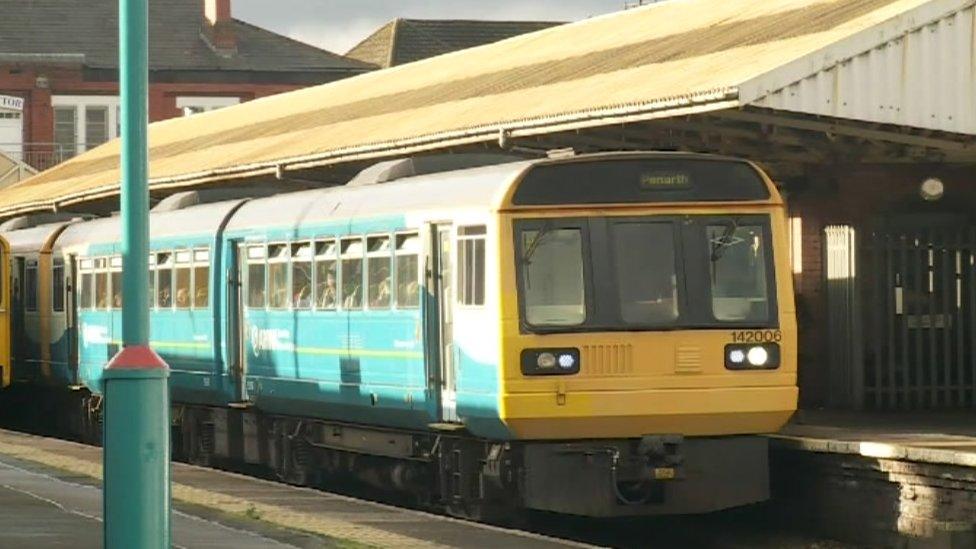
Arriva took over the Wales and Borders franchise in 2003, and ran it until October last year
He said the difference in the two government's policies could be seen by comparing two commuter routes.
"Dorking to London Waterloo and Aberdare to Cardiff are both commuter routes into capital cities and both journeys are 23 miles.
"The cost for a single from Dorking to London is £12.50 but it's just £6.10 between Aberdare and Cardiff.
"People in Dorking can afford higher fares because their London wages are generally higher. Many people in the valleys wouldn't be able to afford the journey cost to get to work unless the Welsh Government subsidised their services to a higher extent than is the case in England."
Prof Cole added: "TfW have also introduced a more sophisticated fares structure, including advance fares, particularly valuable for commuters and leisure travellers.
"In addition, fares on Valley Lines will be reduced by over 10% from January 2020. We would expect a similar policy to be applied to north Wales services."
He said when it comes to TfW services, policy including fares and long term planning was very much directed by the Welsh Government: "This is often misunderstood but there are, in name, two Transport for Wales.
"The policy decisions on fares, subsidy and investment are made by the Welsh Government which passes those decisions onto TfW - the rail authority for Wales - which then carries out the Welsh Government's wishes.
"Then TfW Rail Services run the day to day services; they are a company called KeolisAmey who trade under the TfW brand. The relationship between TfW - the authority where James Price is the chief executive, and KeolisAmey is the same as the relationship which the Welsh Government had with [previous franchise holder] Arriva Trains Wales."

How the main rail network looks
He said pricing was mostly dictated by how much subsidy the Welsh Government wanted to put into the railway, adding: "There are many social, strategic and economic considerations.
"The Welsh Government is trying to get more people to travel by train.
"In the biggest area of road congestion - Cardiff - the government wants to reduce that congestion and its consequent pollution and economic cost by attracting commuters and other travellers into the capital to switch to train where fare levels are known to be one of the key incentives."
A Welsh Government spokesman said fares were calculated using a number of factors including zonal systems and route subsidies, which could create anomalies.
So will people in the north of the country be getting cheaper rail travel any time soon? "Until James Price's TfW takes over responsibility fully for north Wales it will always be more expensive to catch a train there," he added.
- Published15 October 2019
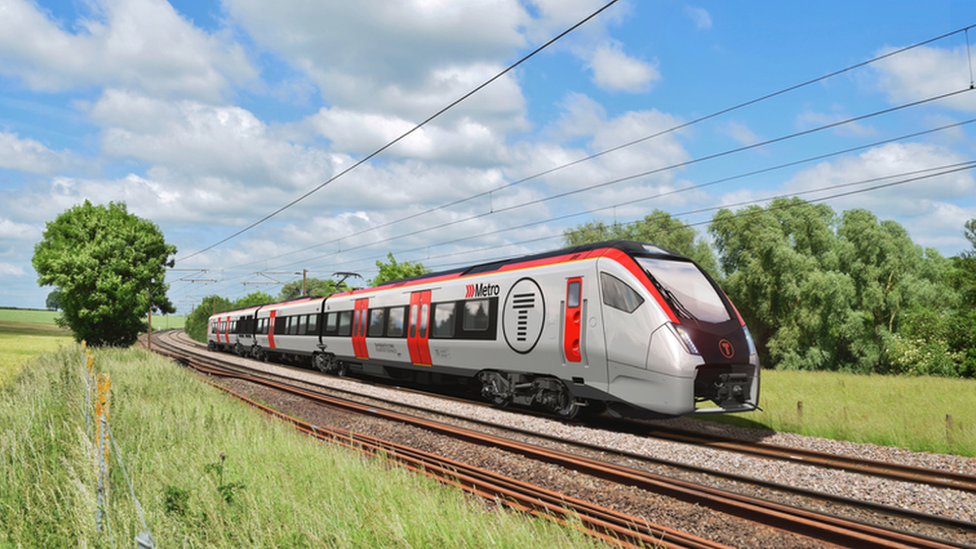
- Published6 October 2019
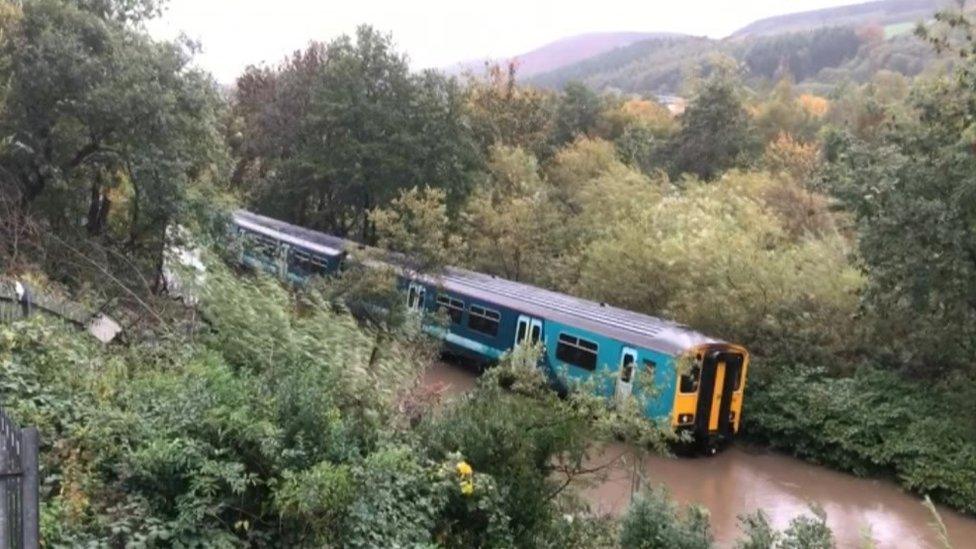
- Published20 July 2019
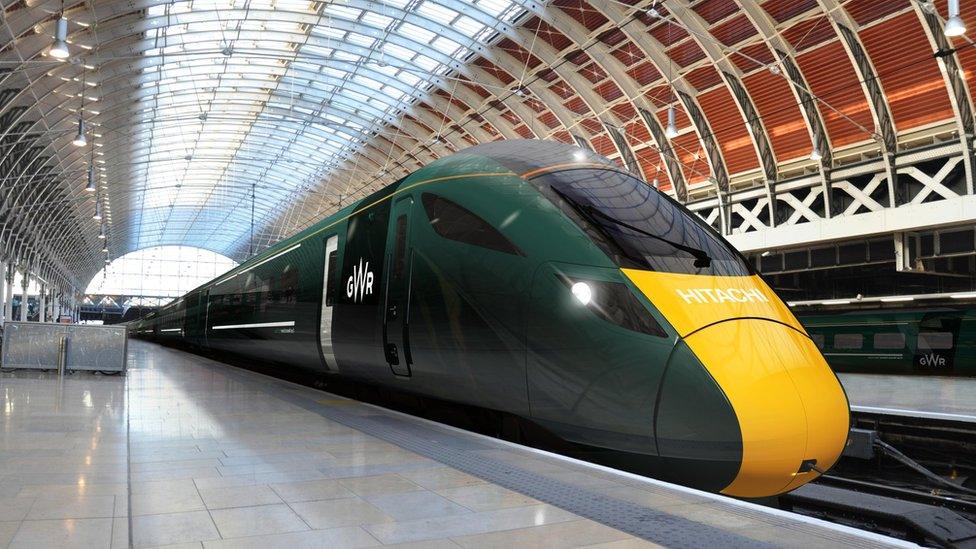
- Published10 October 2019
